Chinese people value health preservation, with Taoists cultivating internal and external elixirs, and Buddhists regulating their breath and mind.
The general public adheres to the principle of eating seasonally, and drinking Tea is no exception. As the temperature drops day by day and our hands and feet grow colder, it's time for some warming teas.
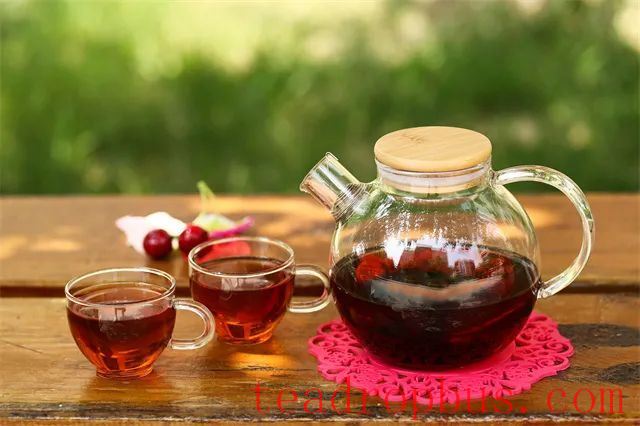
Try Ji Qu Hong Mei, Sweet and Fresh
Black Tea, a fully Fermented tea, has a gentle nature and is suitable for winter consumption. This year, consider trying Ji Qu Hong Mei, the only black tea among many famous teas in Zhejiang Province.
Ji Qu Hong Mei, also known as Ji Qu Wu Long, might sound familiar?
Indeed, the original production area of Ji Qu Hong Mei is the Nine-Bend Stream in Wuyi Mountain.
During the late Qing Dynasty and the Taiping Heavenly Kingdom period, Fujian was in turmoil, and farmers from Wuyi Mountain migrated northward. Some settled in the Ling Mountain area outside Hangzhou City, planted tea trees, made black tea, and sold it to tea merchants in Hangzhou City, which has been passed down to this day.
The best quality Ji Qu Hong Mei comes from the Dahu Mountain area within the Ling Mountain Scenic Area.
Dahu Mountain stands at an altitude of over 500 meters, with a basin at its peak, surrounded by hills and rich soil. Located by the Qiantang River, the area is abundant in water vapor and mist, providing an excellent geographical environment and microclimate for tea tree growth.
Ji Qu Hong Mei has slender, hook-like leaves, with a clear and elegant aroma and taste. It is sweet with a unique fresh flavor reminiscent of red plum blossoms.
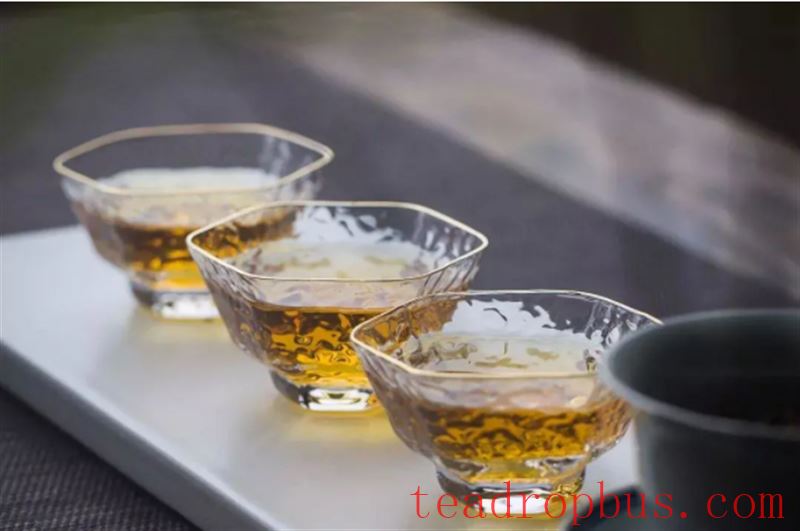
Savor Xiao Qing Gan, Fresh and Pure
Stuff pure Pu'er tea into fresh Xiao Qing Gan (small green tangerines) from Xinhui, allowing the scents to blend harmoniously and the flavors to complement each other, creating a unique and delightful experience.
The fresh fragrance of Xiao Qing Gan and the aged aroma of Pu'er blend perfectly, lingering around your nose. In the cold winter, it tastes sweet and pure, feeling even fresher than in other seasons.
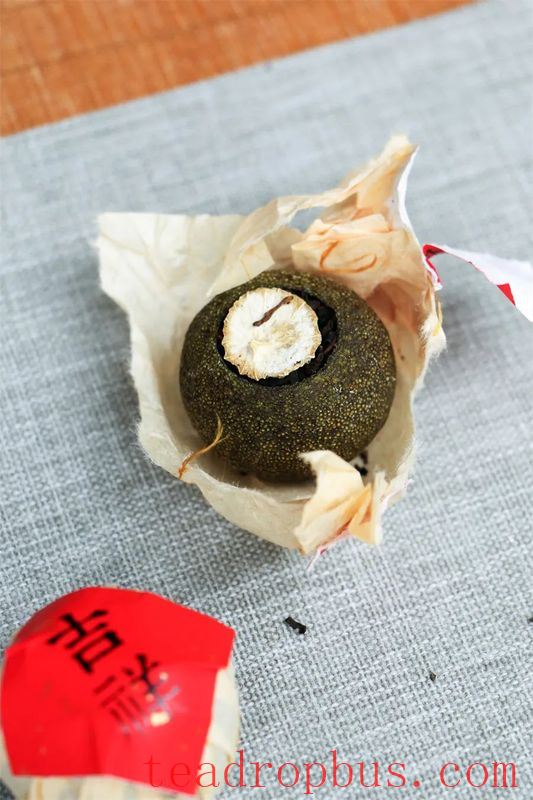
Enjoy Aged Tangerine Peel White Tea, Gentle and Sweet
White tea is not pan-fried or rolled and has a low degree of fermentation, making it a cool-natured tea. However, after several years of aging, the natural oxidation process transforms the inner substances, changing its nature to become warmer, making it ideal for winter drinking.
In the cold winter, simmer a pot of aged white tea on the stove. The fragrant steam fills the room, and holding a Cup of hot tea in your hands can warm them up. Sipping it, the taste is clear and sweet without any bitterness, and the tea liquor glides smoothly down your throat, warming both stomach and heart.
If you add a couple of pieces of aged tangerine peel and cook them together, the refreshing and sweet taste of white tea gains another layer of complexity, offering a distinctive flavor.
Additionally, we recommend Shoumei as the aged white tea choice. Its raw materials are coarser and older than Bai Mudan, containing more inner substances, leading to better transformation effects and a gentler, sweeter taste.
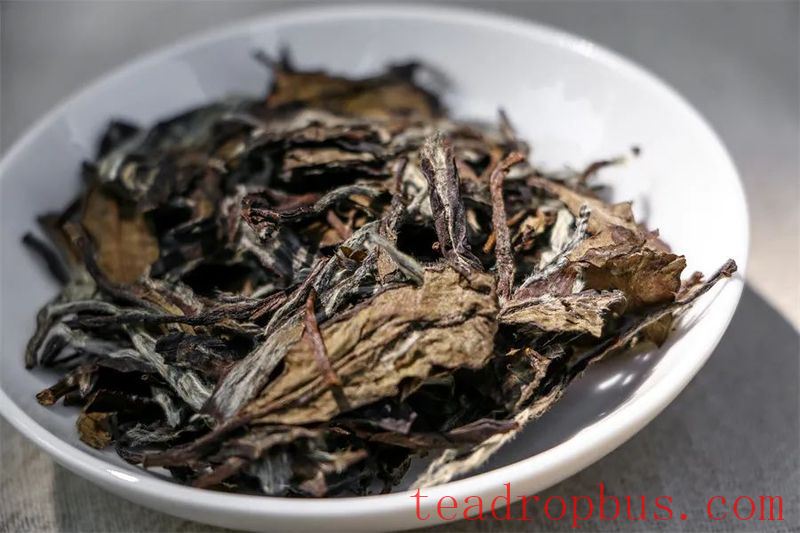
Taste An Cha, Gentle and Pure
An Cha belongs to the niche category of dark teas. Even in its place of origin, Qimen County, it is considered niche, but it has a longer history than Qimen Black Tea.
The main production area of An Cha is in Luxi Town in the southwest of Qimen County. It gained popularity outside its local area and was specifically marketed to Guangdong and Guangxi provinces, and later exported to Southeast Asia, where it was highly favored.
Locals drink An Cha daily to combat the dampness of the region and use it medicinally, holding it in high regard.
During the War of Resistance Against Japan, due to market shrinkage and poor sales channels, production ceased. After half a century, production resumed in the 1990s.
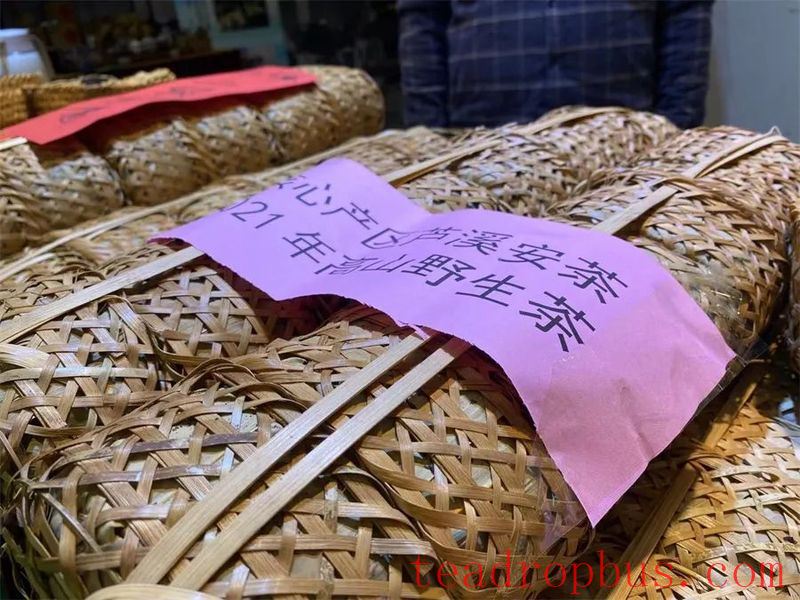
An Cha places great emphasis on timing, with harvesting starting on Grain Rain and steaming beginning on White Dew.
Fresh leaves are picked within ten days before and after Grain Rain when the air humidity is high, the freshness of the leaves is well maintained, and they are fully mature, containing abundant inner substances that are conducive to post-transformation.
Compared to other dark teas, An Cha has a unique process called “night dew.”
The saying goes, “Without night dew, one cannot make good An Cha.”
During the White Dew season when dew becomes more concentrated, on clear nights, the baked tea is spread out on bamboo mats outdoors overnight, turned occasionally to ensure uniform absorption of night dew. It is collected the next morning and enters the softening process by steaming, following the principles of dark tea pile-fermentation.
Newly made An Cha has a high and long-lasting aroma, a pure and refreshing taste, and a bright orange-yellow liquor, carrying the heat from the baking process.
After aging, An Cha loses its heat, becoming gentle in nature and pure in flavor, making it a perfect choice for winter drinking.
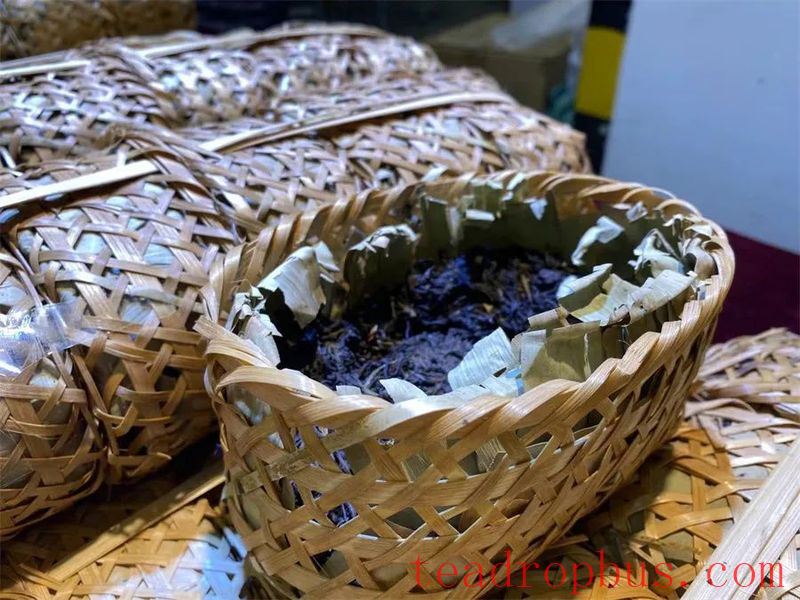
Finally, a familiar refrain: There are fine teas, but what suits your taste is most precious.
Drinking warming teas in winter is a matter of practical experience in life. However, for individuals, different constitutions and preferences mean that no blanket statement can be made.
In fact, as long as your body enjoys it and there are no adverse reactions after drinking, it doesn't matter what you choose to drink, regardless of the time or place.
If there is any infringement, please contact us for deletion.